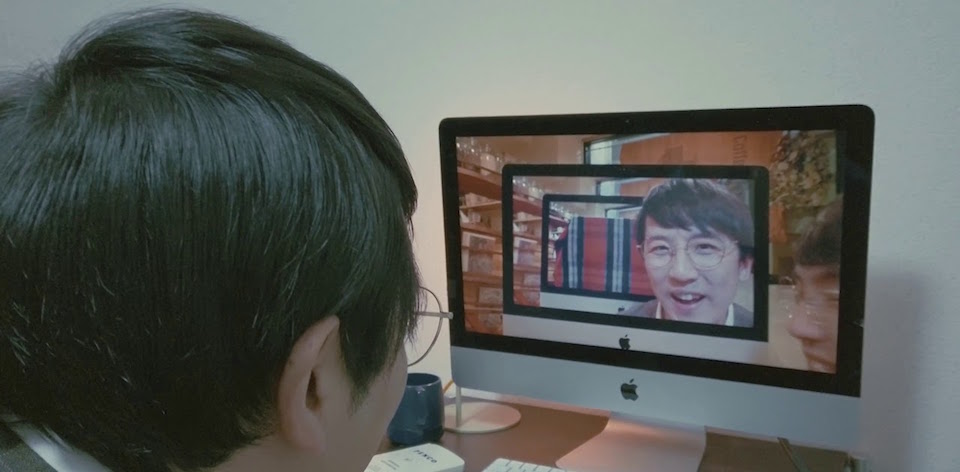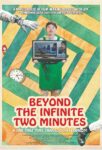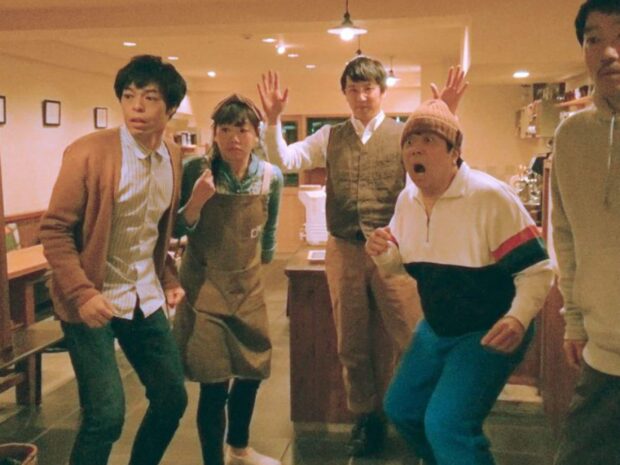If two genres have emerged victorious out of the last couple of years, then it’s time loop films and the so-called ‘screenlife’ approach. The latter is partly due to the events we are living in, and arguably the former is born out of a related desire for a ‘do-over.’ In Junta Yamaguchi’s debut film, the two genres are combined to form one of the more original indies in recent memory.
In the film, Kato (Kazunari Tosa) owns a small cafe near Kyoto’s Nijo Station. When he returns to his apartment above the shop, he starts talking to himself. More than mere mutterings, he finds that his computer screen and a TV in the cafe are windows to a version of himself two minutes into the future. After several experiments, his friends and colleagues start messing about with the ‘Time TV’ to see if they can hack the future. If you’ve ever seen a time loop film, you know that things don’t go smoothly from here.
There is a moment in the first 20 minutes or so of this film that you think it’s just going to be repeating one scene after the other. The characters will interact with themselves on the upstairs screen before running downstairs to do it all again from the opposite angle (or two minutes into their future). If the film kept going in this fashion, then the concept would be played out in a cycle or so.
Yet, like the understated genius of the premise, it manages to surprise at critical points — and just keep doing so. It’s shot as a single-take film too, adding to the novelty but also keeping the momentum going. When the ‘Droste’ effect is discovered — that is, the recursive images created by reflecting the monitors back at each other — the film’s possibilities become a little more infinite.
Paradoxically led by the actions of their future selves, Yamaguchi just keeps adding characters from the immediate neighbourhood, the (literal) wrong side of the tracks, and the not-too-distant future. Forever threatening to topple in on itself, the film often appears to be an elaborate game of improv. It’s like someone yelled ‘Yes, and…’ and the response was ‘utter chaos!’
None of it makes too much sense if you stop and think about it for too long, so it’s probably a good thing that we’re in and out in just 70 minutes. It all culminates in a genuinely clever denouement, where the ‘bad guys’ are ultimately overcome through a combination of foresight and comical use of the Droste screens. It’s kind of like the end of Back to the Future Part II if it had involved a bottle of ketchup instead of a sports almanac. It’s a barrel of fun if you just let yourself go with it.
BEYOND THE INFINITE TWO MINUTES (ドロステのはてで僕ら) is screening as part of the 25th Fantasia Festival running 5-25 August 2021.
2020 | Japan | DIRECTOR: Junta Yamaguchi | WRITER: Junta Yamaguchi | CAST: Kazunori Tosa, Aki Asakura, Riko Fujitani, Gôta Ishida | DISTRIBUTOR: Nikkatsu, Fantasia Festival 2021 | RUNNING TIME: 70 minutes | RELEASE DATE: 5-25 August 2021 (Fantasia 2021)







